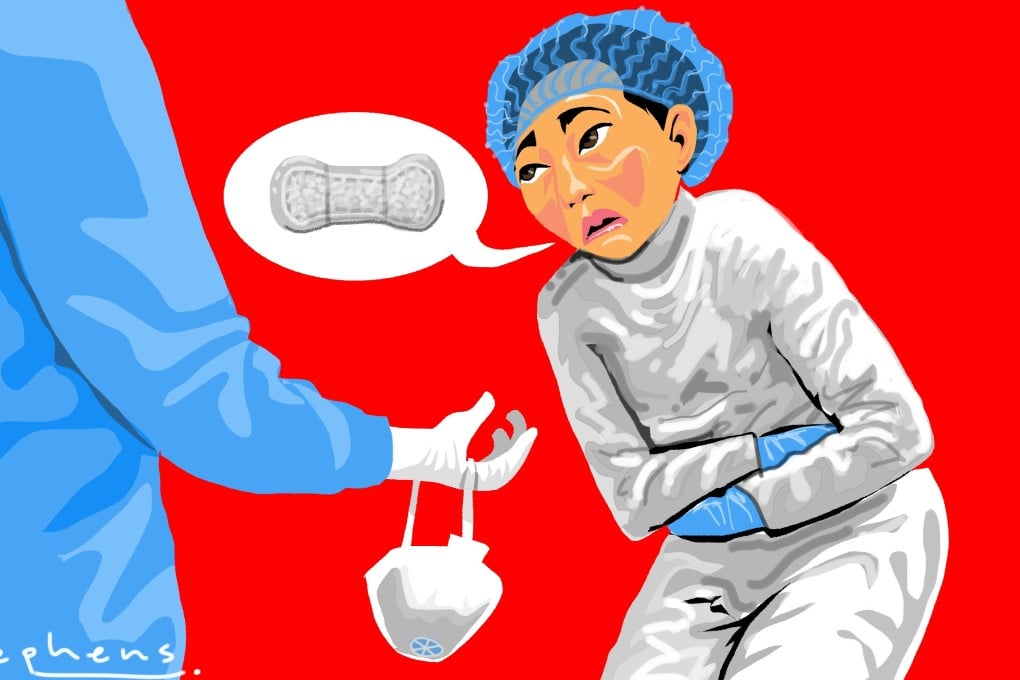Advertisement
Opinion | How China’s coronavirus health care workers exposed the taboo on menstruation
- Women make up more than half the doctors and 90 per cent of nurses battling the epidemic in Hubei, yet have been forced to forgo sanitary supplies as they were not deemed ‘critical’. Thankfully, after an online outcry, this is changing
Reading Time:4 minutes
Why you can trust SCMP

Overworked and exhausted, Chinese doctors and nurses fighting the coronavirus epidemic face a daunting task, caring for an increasing number of patients while risking infection due to a shortage of protective gear. They avoid eating or drinking during their long shifts, and many wear diapers to minimise bathroom breaks so as to make the most of their precious masks, suits and goggles.
For women, there is the additional issue of periods. Due to a drastic lack of sanitary products, often their “urine and blood flow together” into the diaper, one doctor said in an interview.
In cold and rainy Wuhan, the centre of the outbreak, it is difficult to prepare enough dry and warm clothing, so during menstruation, some women have to skip underwear under their protective plastic coats, and work with visible blood stains.
Advertisement
As medical practitioners, they know all too well the harm of urinary tract infections, yet have no better options. In China, menstruation has long been a taboo topic, rarely discussed, leaving a major knowledge void in reproductive health.
A recent controversy highlighted this, and also provides a glimmer of hope for a much-needed change in attitudes.

In mid-February, China Central Television aired a story in which a young nurse was heard saying: “I’m having my period and have period pain , but have to take care of three patients who need my help.”. For the rebroadcast a few hours later, however, that bit was edited out. It quickly backfired as many netizens took issue with CCTV’s editing.
Advertisement
Select Voice
Select Speed
1.00x
